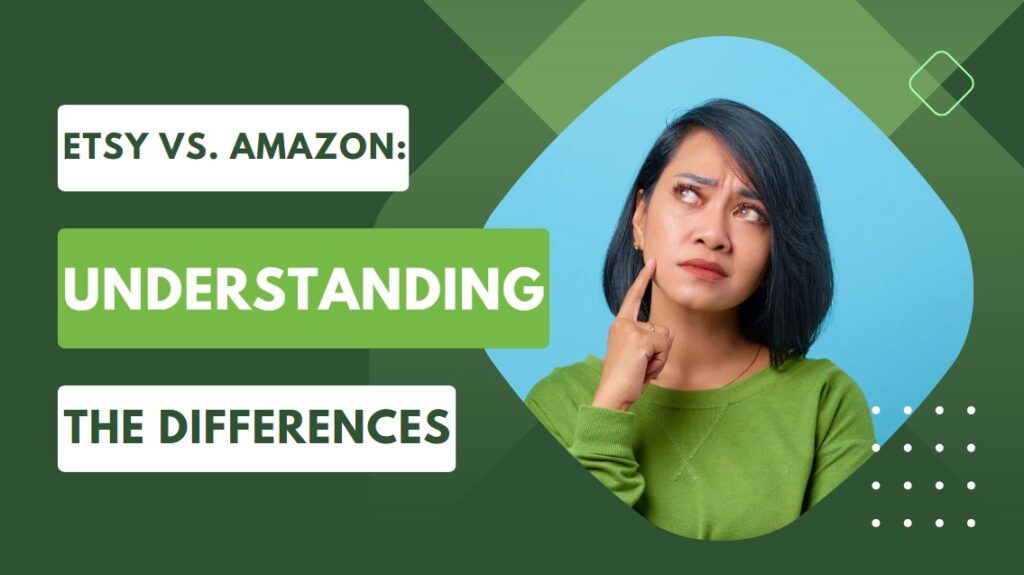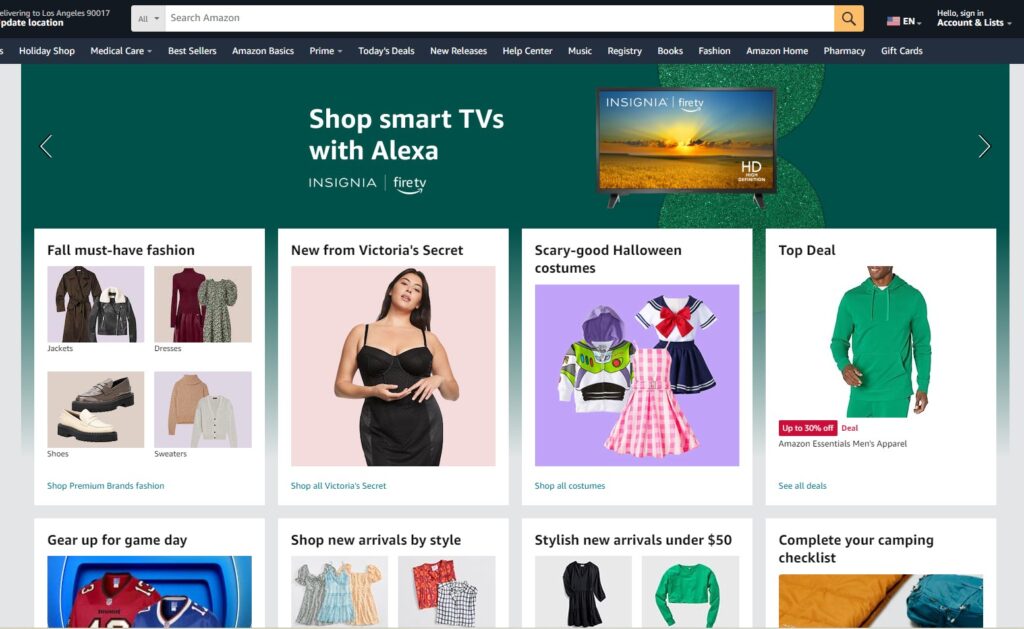Etsy vs. Amazon: Understanding the Differences

In the world of e-commerce, Etsy and Amazon are two prominent platforms that offer opportunities for sellers to showcase and sell their products. While both platforms cater to online shoppers, there are significant differences between Etsy and Amazon that make them unique in their own ways. In this blog post, we will explore and compare the key differences between Etsy and Amazon, helping you understand which platform might be the better fit for your business.


1. Marketplace Focus:
Etsy: Etsy is known as a marketplace for handmade, vintage, and craft supplies. It has a strong emphasis on unique, one-of-a-kind items created by independent artisans and sellers. The platform has built a community around creativity and craftsmanship, attracting buyers who appreciate the personal touch and individuality of handmade products.
Amazon: On the other hand, Amazon is a massive online marketplace that offers a wide range of products, including both handmade and mass-produced items. It caters to a broader audience and provides a platform for sellers of all sizes, from small businesses to large corporations. Amazon's focus is on convenience, offering a vast selection of products and efficient shipping options.
2. Product Selection:
Etsy: Etsy's product selection is curated to maintain its focus on handmade, vintage, and craft supplies. Sellers on Etsy are encouraged to offer unique, artisanal products that are often customizable or made-to-order. This appeals to buyers who seek out personalized and distinctive items that are not commonly found in traditional retail stores.
Amazon: Amazon's product selection is vast and diverse, covering almost every category imaginable. From electronics and household essentials to clothing and books, Amazon offers a wide range of products from various sellers. While handmade products are available on Amazon through its Handmade category, they coexist with mass-produced items, making it a more competitive marketplace.
3. Seller Experience:
Etsy: Etsy provides a more personalized and community-driven experience for sellers. It offers features such as shop customization, direct communication with buyers, and the ability to tell the story behind each product. Etsy's seller community is known for its supportiveness and collaboration, creating a sense of belonging and shared passion for creativity.
Amazon: Amazon focuses on efficiency and scalability for sellers. It offers tools and services that streamline the selling process, such as fulfillment by Amazon (FBA) for inventory storage and shipping. While it provides a vast customer base and potential for high sales volume, the seller experience on Amazon can be more transactional and less personal compared to Etsy.
4.Branding and Marketing:
Etsy: Etsy allows sellers to build their brand identity through shop customization, including banners, logos, and product photography. It emphasizes the story behind each product and encourages sellers to connect with buyers on a more personal level. Etsy also provides promotional tools like coupon codes and social media integration to help sellers market their products.
Amazon: Amazon's focus is more on product visibility and search optimization rather than individual seller branding. While sellers can create their brand presence on Amazon, the platform's layout prioritizes product information and customer reviews. Amazon offers advertising options like sponsored product listings to boost visibility, but the emphasis is on product performance rather than seller identity.
5. Tools:
Etsy:Etsy mainly only has tools such as Esale and EHunt that can be used.
Amazon:Amazon has a variety of product selection and operation tools, such as Sif, Keepa, Seller Wizard, etc.
In summary, Etsy and Amazon are distinct e-commerce platforms with different focuses and target audiences. Etsy caters to those seeking unique handmade products while fostering a sense of community among sellers and buyers. Amazon, on the other hand, offers a vast selection of products, including handmade items, with a focus on convenience and efficiency. Understanding these differences can help you make an informed decision about which platform aligns better with your business goals and target market.






